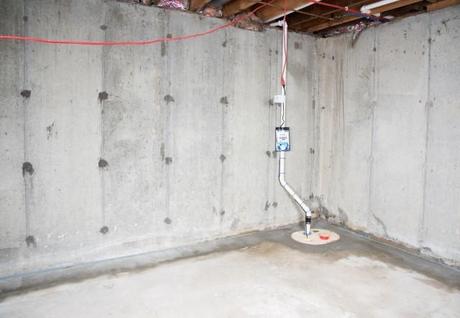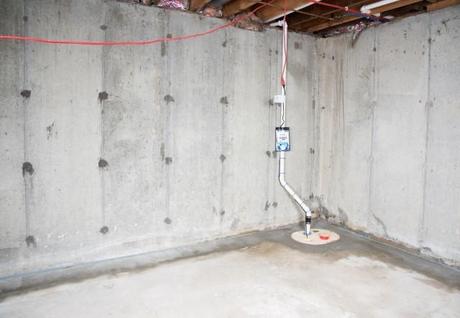

Basement waterproofing is a crucial step to take if you have any type of water coming into your basement. Water can seep through the foundation, cracks in the walls and other sources. It may not seem like a big deal when it just happens once in a while, but eventually that water will become a bigger problem as time goes on.
Basement waterproofing has also become an increasingly popular form of home improvement. As the cost of living increases, people are looking for ways to save money by doing things themselves. Basement waterproofing is a relatively simple and inexpensive project that can have huge benefits in terms of both safety and savings. In this article we will discuss what basement waterproofing is, why it's important, how much it costs and how to do it yourself!
What is basement waterproofing?
Basement waterproofing is the process of preventing water from seeping through the foundation, cracks in the walls and other sources. When you have a basement that doesn't get wet very often it's easy to forget about this issue but if your home has an unfinished or poorly-finished basement, it becomes more important because water may not be able to seep out as easily so when it does come in contact with surfaces like concrete floors or drywall, it can damage them. This type of flooding can lead to serious problems throughout your house including mould growth and electrical shock hazards. Basement waterproofing will help prevent these dangers by keeping water away from areas where they are most likely to do damage by reducing how much seeps in.
What is involved in waterproofing a basement?
Waterproofing a basement is an investment and should not be done without careful consideration. There are quite a few different types of materials that can do the job including cement, rubber membranes or coatings, sealants as well as caulking which all come in varying levels of quality and price but choosing the right one will depend on what your needs are for it to work best. For example you may want something with more protection from water so choose waterproofing membrane over another option like paint; however if you're looking for something more affordable then consider using sealant instead.
It's also important to think about how much space you'll need before deciding on what type of surface material because sometimes there isn't enough room. You might have difficulty installing a waterproofing system if you're dealing with too many pipes, for example.
Another thing to think about is the age of your home and what type of foundation it has in order to figure out how best to apply any waterproofing material. If your roof leaks or there are cracks on the exterior wall then this might be because they weren't built correctly and will need more than just sealant applied so that's something you'll want to take into consideration when choosing which one would work best. Other factors like sealing up dirt from seeping underneath; installing gutters around windows; using sump pump systems along with perimeter drains... all of these things can help keep water away from getting inside where it doesn't belong.
Is basement waterproofing expensive?
Basement waterproofing is not a one-time thing. It needs to be done periodically in order to keep the basement dry and free of mould, mildew or heat related problems like musty odours and condensation on windows that is caused by temperature variations from outside air entering inside your home.
A professional waterproofing company like Damp Hero should be able to assess what type of issue you have with water coming into your basement and recommend the best way possible for this problem to be resolved within your budget.
Waterproofing costs can vary quite considerably depending on how much work needs doing; whether it's just sealant application - which usually ranges between £100-£120 metre squared.
Does insurance cover basement waterproofing?
Insurance companies do not cover the cost of waterproofing; it is a general rule that insurance does not pay for structural repairs. It pays out in cases where there has been damage to your home on account of another person's negligence, such as faulty plumbing or building work. However, you can ask your insurer if they will reimburse you with some money towards waterproofing so long as you have comprehensive coverage and have had the basement water-proofed within two years of noticing any issues.
Waterproofing costs are usually fixed per metre squared - which means that paying more upfront could save down the line by preventing recurring fees if moisture continues to come into contact with your house's foundation walls from outside sources like rainwater.
How long does basement waterproofing last?
Basement waterproofing lasts for a long time. It can last anywhere from 20 to 50 years, and will typically need repairs in that time frame only if the foundation is exposed to air or water infiltration because of slowly deteriorating materials.
We recommend using an acrylic-based solution which dries quickly - it's easy to clean up and less corrosive than other types of waterproofing products out there! Acrylics also dry with minimal shrinkage so you don't have to worry about cracks showing up in high traffic areas like doorways after wet weather sets in.
The key thing when basement waterproofing is ensuring ventilation: make sure your house has plenty of airflow (i.e., proper drainage system) as well as good insulation under the floorboards and around.

